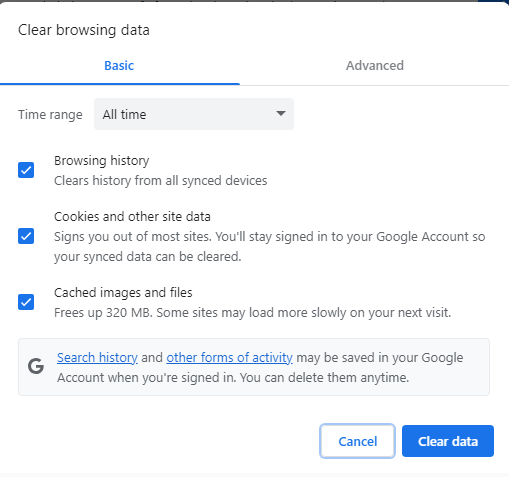According to State Counter, Google Chrome has acquired a 62% market share in the browser industry. Safari is the second most downloaded web browser, which acquires only 20% of the market share. Google Chrome is a widely used web browser for computer and Android devices. Also, it is a default browser for Android devices.
However, only some Chrome users are techy; some need to learn how to optimize it. They often experience sluggish browsers. Due to the cache files of extended time, too many extensions, and obsolete browsers, Google Chrome can be slower. If your Chrome browser is slow and want to know how to make Chrome faster, check out the tips below.
10 Simple Ways to Make Chrome Faster
If you have slow Chrome and want to make it fast, apply these tips below. Here, I will share the easiest and simple tricks to make Google Chrome faster and cleaner.
1. Check your internet connection and speed
Before blaming Chrome for slow speed, check whether you have internet access. Often, the internet could be more stable, and it may not be available. If there is no internet, the website will not be loaded.
Also, the speed may be low even if the internet is available. So you may experience slower loading times. In that case, check the internet speed at Fast.com and let the ISP know if there is any technical issue. If you use a shared connection, the speed will drop from time to time.

2. Check what kind of website you are visiting
A significant difference exists between loading a single-page blog and a vast ecommerce website or a streaming site. The browser loading speed depends on not only the browser but also on the website. If you visit a massive website with hundreds of functions, usually, it will take a while to load, no matter how fast your browser is. Often, websites may have technical issues that cause slow loading.
3. Clear cache, cookies, and history
While visiting any website for the first time, Google Chrome starts downloading and saving various website resources like HTML, JavaScript, CSS, images, and other website elements to speed up the loading process next time. These files, elements, and resources are called web caches. It’s an excellent method to load the website faster, but accumulating cache files for a long time may cause reverse effects.

If you don’t clear the Chrome cache, it will consume significant space on your browser and computer memory. Also, many cache files slow down Chrome and often conflict with the website changes. As a result, you may experience slower loading.
Delete all cache, history, cookies, and other site data to lighten up and clean up the Chrome browser. Clearing these files will make your Chrome browser brand new and speed up loading.
If you need to learn how to clear the Google Chrome cache, follow the steps below.
- Open the Google Chrome browser.
- Click the three vertical dots or the “Customize and control Google Chrome” option from the upper-right corner.
- Click the “More tools” option and go to the “Clear browser data” option from the sub-menu.
- Or you can go to the “Clear browsing data” option directly by pressing the “Ctrl+Alt+Del” key from the keyboard.
- A small pop-up will appear with app cache-clearing options. Select the time range to “All time” from the drop-down menu.
- By default, browsing history, cookies, and other site data, cached images, and files will be selected. Click the “Clear data” button and wait a while to complete the cache-clearing process.
- When all history, cookies, and cached files are deleted, your Google Chrome browser will be brand new and fresh.
For more details: How To Clear Browser Cache (Chrome, Mozilla, Opera, and Edge)
4. Remove unnecessary extensions
Google Chrome has a huge library of extensions to facilitate optimum browsing experiences. You can find more than one extension for any task. However, extensions help you complete multiple tasks from the browser; too many slow down Google Chrome because all the extensions run in the background while you use the Chrome browser.

The fewer extensions you have on Chrome, the faster it will get. Check out how many extensions you have and delete the unnecessary ones. Follow the steps below to remove extensions.
- Open the Google Chrome browser.
- Click the 3 vertical dots from the upper-right corner of Chrome.
- Click the “Extensions” from the menu and go to the “Manage extensions” option.
- Check how many extensions you have installed and how many you need to use.
- Remove the unnecessary extensions one by one and keep only the important ones.
- Removing and clearing extensions will make your Chrome browser faster and lighter.
5. Update the Google Chrome browser
Like other internet browsers, Google Chrome receives periodic updates to improve its functionalities, increase speed, minimize risk, and introduce higher security measures. Older versions of Chrome often conflict with the websites, and you may experience slower loading speed.

Google Chrome has automatic update options, which are switched on in the settings. Most of the cases, you are already on the updated version. However, if, for any reason, the automatic update is off or you are already one update behind, you have to update it manually. Here is how you check and update Chrome.
- Open the Google Chrome browser.
- Click the three vertical dots from the upper-right corner and go to the “Settings” option.
- Click the “About Chrome” from the -bottom-left menu and check whether your Chrome browser is up to date or if there is any update available.
- Usually, when you click the “About Chrome” option, Chrome will quickly check and update to the latest version.
- If your Chrome is up to date, it will show a blue tick, and Chrome is up to date message and version number. You don’t need to do anything extra.
6. Don’t open too many tabs at the same time
Have you ever noticed a few computer users who open hundreds of tabs and complete tasks but never close ones? Well, many PC users need to learn each opened tab consumes a portion of RAM, CPU, and browser resources. So too many opened tabs will occupy a significant memory of your PC. As a result, Chrome starts acting weird, like loading takes time, freezes, and even crashes or hangs.
Opening too many tabs simultaneously is the primary reason your Chrome could be faster. To make it faster, close unnecessary tabs or try opening only the tabs you need and close them before opening another one. Usually, a dozen tabs will not hurt the browser speed, but more than that may slow down the loading speed. However, if you need to open many tabs for work, try another browser or divide your work into small groups.
7. Let Chrome preload web pages
Google Chrome is an advanced web browser with different next generation browsing features. Preload is one of the top advanced features that make Chrome faster. Web page preloading means fetching and downloading resources of any web page you intend to navigate. If Chrome preloads resources like CSS, HTML, JavaScript, and other web page elements before visiting, it can load the page faster when you click on it because Chrome has already loaded most of its content. To set up preload of your Chrome browser, follow the steps below.
- Open Google Chrome and click the vertical dots from the upper-right corner.
- Go to the “Settings” option from the menu.
- Click the “Privacy and Security” option from the left menu.
- Click the “Third-party cookies” option under privacy and security.

- Click the “Preload pages” and choose your preferred preloading options, from no preloading to extended preloading.

- Usually, the “Standard preloading” option is selected. However, you can choose extended preloading.

8. Turn on the memory saver
When you open multiple tabs, Chrome has to use computer memory and other resources for each tab. If you use a few tabs, the rest stay idle, but they use memory proportionately. So the inactive tabs consume memory and resources. This process will slow down the Chrome browser.

However, if the memory saver is switched on, Chrome will free up memory from the inactive tabs and assigns more resources and memory to the active ones. This process will make Chrome loading faster and perform better. To switch on the memory saver, follow the steps below.
- Open Google Chrome and navigate to the “Settings” option from the menu under the three vertical dots in the upper-right corner.
- Click the “Performance” feature from the left menu.
- Switch on the “Memory Saver” if it is not already switched on.
9. Restore Settings to their original defaults
If you need help figuring out what causes Chrome’s slow performance or try everything I have recommended above, but Chrome still needs to be faster, you can reset Google Chrome to its default settings. Resetting Google Chrome to its original configurations will delete all kinds of customization, clear cookies, and other temporary site data, turn off extensions, and more.
Restoring Chrome will make the browser fresh and new. It will work as a brand-new browser by deleting all settings and configurations. It will make Chrome faster and fresh. Here’s how to restore settings to their original defaults.
- Open the Google Chrome browser.
- Go to the three vertical dots from the upper-right corner.
- Click on the “Settings” option from the menu.
- Click the “Reset settings” option from the left menu.
- Click on the “Restore settings to their original defaults” option.

- Click the “Reset Settings” button to restore to its original settings.

10. Clean your computer and scan for malware
Google Chrome uses your computer’s hardware and software resources. If your computer has any issue like slowing down, it will affect your Chrome browser too. To make the Chrome browser faster, you need to clean your computer.
Also, scan your computer for malware, viruses, or other malicious programs. These malicious programs can interrupt the regular functionalities of the Google Chrome browser. Scan your computer with Windows Security and check for any viruses.
Related: 13 Ways to Speed Up Windows 10 PC
FAQs
[faq-schema id=”689″]
Conclusion
Often, a slow Chrome browser may result from other reasons, like the website you are visiting has an issue or your internet connection is slow. Another reason could be your slow computer. So it would be wise if you speed up your Windows PC first.
Computer hardware can affect the Chrome browser speed. If your computer has low RAM and disk space, Chrome and all browsers and computer functions will be slow. That’s why it would be helpful to consider adding more memory or RAM to your computer.

